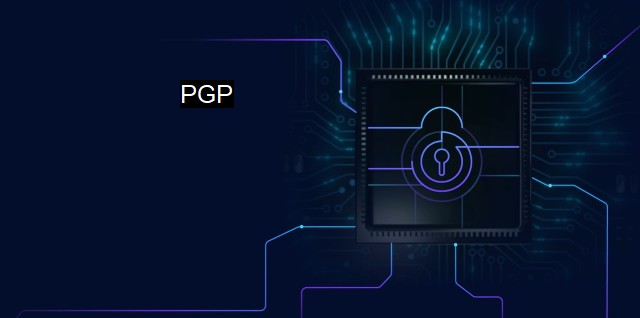What is PGP?
Securing Digital Communication: An Overview of PGP Encryption and Cybersecurity
Pretty Good Privacy (PGP) is a cybersecurity system used for sending encrypted and decrypted messages across digital platforms. This sophisticated functionality was developed to solve numerous information security issues such as system tampering, data interception and unauthorized access, which can lead to severe issues like data breaches and identity theft.PGP is a recommendation with an approval to secure digital communication, utilized globally for providing data confidentiality and integrity. Phil Zimmermann, a well-known American computer scientist and cryptographer, is the mastermind behind this innovative invention in the early 1990s. It uses a methodology of public-key cryptography where both the private key and the public key are used for message encryption and decryption. It means the keys are unique, making it challenging for cyber criminals to hack and decode the information.
Initially, communication over the internet didn't have much protection, hence confidential data was at risk of being intercepted by unintended recipients. This is where PGP stemmed into the information technology realm and revolutionized the digital world by introducing a private setting for communication over the web. Over time, more functionalities were added to it, like digital signatures to verify the authenticity of the sender and receiver.
PGP functions by compressing the user’s plaintext messages, making data transmission faster and the intercepted code harder to decipher. An algorithm, using a one-time session key, then encrypts the compressed text. This key is also encrypted to the recipient's public key. Together, encrypted message and key are sent to the recipient who uses a private key to decrypt the session key and that key further decrypts the information.
a vital part of PGP is digital signatures, ensuring data integrity, and identity authentication. When a sender wants to sign a message digitally, the PGP algorithm produces a unique hash code for the sender’s name and other data of interest. Then the sender’s private key is employed to encrypt this hash code, forming a unique digital signature for the sender.
Patterns in the encrypted text are indiscernible with PGP, which forces cybercriminals to break each key individually rather than working their way through a structured text. A robust security firmament is established by PGP, making data breaches dreary and almost impossible. This is why today; PGP is a staple to all cybersecurity professionals employing it to maintain confidentiality and security in vaccines for digital systems.
Antiviruses play an important role in detecting and removing viruses from the digital infrastructure. with the sophistication of cyberattacks, the sole use of antivirus is inadequate. PGP takes the lead here; it surrounds and embeds the information securely, making it impassable for virus-laden programs.
Privacy is a concern today, and it's an area where PGP reigns supreme. In this world of cyberattacks, information security is fundamental because the utmost weapons of destruction can be a computer and stolen access. In ensuring data walks securely on the internet, PGP provides the best footwear. In this journey, emerging advancements and innovations, alongside PGP, play complementary roles since addressing information security and creating a safe environment over the web should be a world-wide concern.
Pretty Good Privacy not only secures electronic mail from snoopers but also guards against data corruption feasibly. Tools like PGP can dramatically shape the path of technological advancements and keep elements threatening cybersecurity at bay—giving future communications a secure, encrypted environment for global interaction.
PGP has changed how messages are sent over the internet, replacing the traditional pen-and-ink formal letter writing with digital text secured by the world's most effective tools in cybersecurity. Therefore, enhancing trust and the continual flow of internet communication safely and subtly without compromising valuable information such as passwords, credit card data, among several others. Hence, PGP holds an integral place in cybersecurity and antivirus realization.

PGP FAQs
What is PGP and how does it enhance cybersecurity?
PGP stands for Pretty Good Privacy and it is a cryptographic protocol that provides end-to-end encryption for emails and other electronic communications. PGP enhances cybersecurity by ensuring that only the intended recipient can read the encrypted message, even if the message is intercepted or accessed by a third party.Is PGP effective against antivirus software?
PGP is not designed as an antivirus software, but rather a cryptographic protocol that encrypts data to ensure its confidentiality. However, PGP can be used in conjunction with antivirus software to enhance the overall cybersecurity posture of a system.What are the benefits of using PGP?
The main benefit of using PGP is the enhanced security and privacy it provides for communications. PGP encrypts emails and other electronic communications to ensure that only the intended recipient can read the message. This helps protect sensitive information and ensures the privacy of the communication.Is PGP difficult to use for non-technical users?
PGP can be challenging for non-technical users to use, especially when it comes to key management and verifying the authenticity of the public key. However, there are user-friendly PGP software programs available that simplify the process and make it easier for non-technical users to use PGP for secure communication.Related Topics
Encryption Public Key Infrastructure (PKI) Digital Signatures Secure Email Cryptography
| | A | | | B | | | C | | | D | | | E | | | F | | | G | | | H | | | I | | | J | | | K | | | L | | | M | |
| | N | | | O | | | P | | | Q | | | R | | | S | | | T | | | U | | | V | | | W | | | X | | | Y | | | Z | |
| | 1 | | | 2 | | | 3 | | | 4 | | | 7 | | | 8 | | |||||||